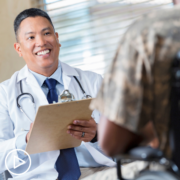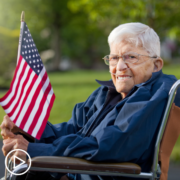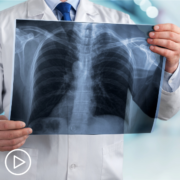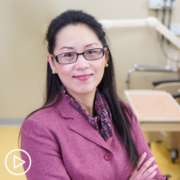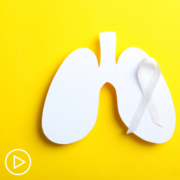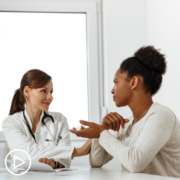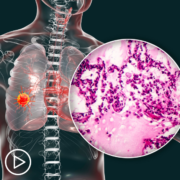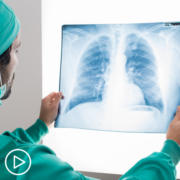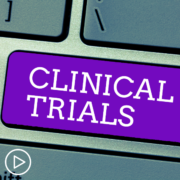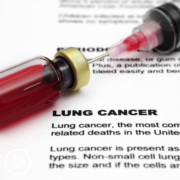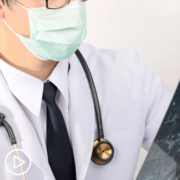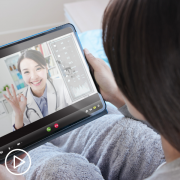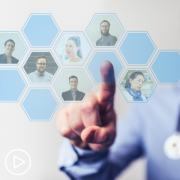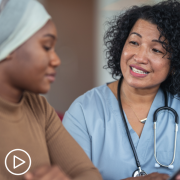Navigating Lung Cancer Clinical Trials: VA Support and Resources for Veterans
Navigating Lung Cancer Clinical Trials: VA Support and Resources for Veterans from Patient Empowerment Network on Vimeo.
How can veterans with lung cancer access support services for clinical trials? Expert Dr. Michael Kelley from Duke University School of Medicine discusses clinical trials at VA locations, support services to help access clinical trials, and proactive patient advice for transportation costs to clinical trials.
[ACT]IVATION TIP
“So sometimes the clinical trial will pay for transportation costs. Sometimes the clinical study will pay, and sometimes no one will pay. So you do have to ask whether that is provided, and if not, are there other resources that could be used to help pay for any transportation that would be needed?”
Download Resource Guide | Descargar guía de recursos
See More from [ACT]IVATED NSCLC Veterans
Related Resources:
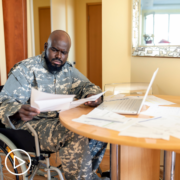
Do Disparities Exist for Black and Latinx Veterans Facing Lung Cancer? |
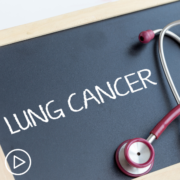
Equitable Access: Overcoming Challenges in Precision Medicine for Veterans with Lung Cancer |
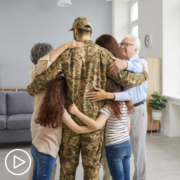
|
Transcript:
Lisa Hatfield:
So if a patient finds a clinical trial that’s outside of the VA, will the VA help coordinate that being a part of that clinical trial if it’s outside of the VA? And the other question I would have about that, are clinical trials done at all of the VA facilities or if a person sees one that’s done, maybe they go to a smaller facility, they have to go somewhere else, can they go to that larger facility for the clinical trial?
Dr. Michael Kelley:
Yeah, great questions. So several different answers to that. So there are…some VAs do clinical trials and some don’t. And any clinical trial is not open at every VA. So if it’s open at some VAs, it may not be open at other VAs. So if the veteran finds a clinical trial at another VA and they’re willing to travel to that other location, there are generally no barriers to doing that and to enrolling in that clinical trial at the other VA.
But let me start with the first part of your question is, well, how do I find a clinical trial? So this is, I think, a barrier that we’ve all realized, and we’ve set up a service that is called the Clinical Trial Navigation Service. So a provider can ask this service to talk with the veteran and to help find a clinical trial that might be appropriate for them and then to report that back to the provider. So they can talk about what geographic area would be appropriate for the veteran and then other characteristics of the veteran and their medical care that would help inform if there’s a clinical trial available.
In the VA or outside the VA, we’ve initially partnered a lot with the National Cancer Institute at the NIH Clinical Center in Bethesda, Maryland where they will actually provide transportation for people to enroll in clinical trials at that center.
So that’s one of the areas we’ve been working with and then a few other organizations or systems. So that is one thing is you have to find the clinical trial. And the other part of your question was, you know, will VA help the patient get there? Okay. So sometimes the clinical trial will pay for transportation costs. Sometimes the clinical study will pay, and sometimes no one will pay. So you do have to ask whether that is provided, and if not, are there other resources that could be used to help pay for any transportation that would be needed.
Share Your Feedback
Create your own user feedback survey


